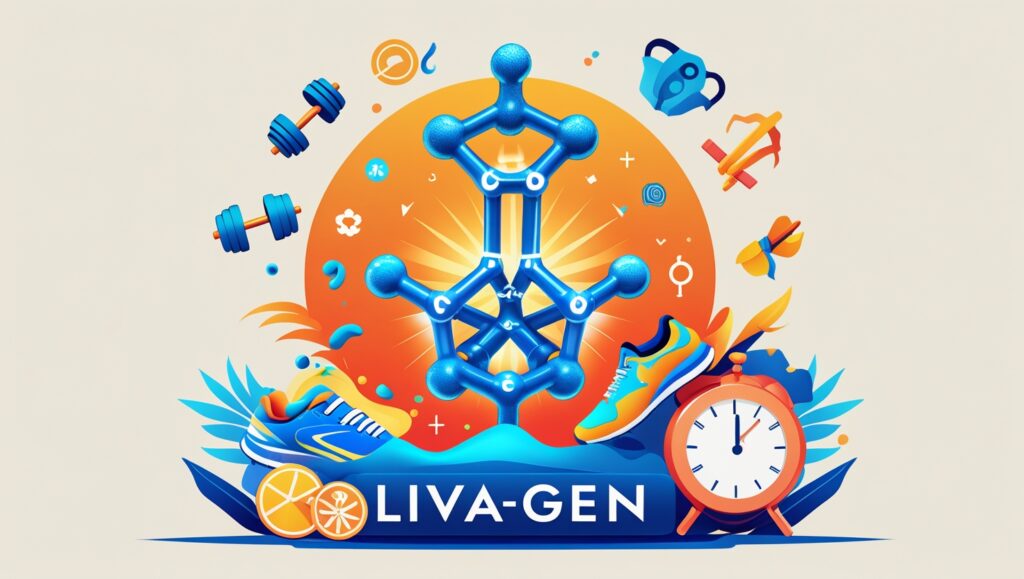As the boundaries between fitness science and longevity research continue to blur, peptides have become front-runners in the quest for improved performance, vitality, and recovery. Among these, Livagen—a short peptide complex—has quietly built a reputation for its cellular-level impact on aging and immune health. While initially studied for geriatric use, Livagen is now gaining attention in performance-focused research circles. Labs and wellness researchers exploring peptides for sale are beginning to investigate Livagen’s potential for muscle recovery, cellular regeneration, and its protective role in aging.
So, what makes Livagen different from other peptides in the realm of fitness and anti-aging? Let’s unpack the science behind this small but powerful compound.
What Is Livagen? A Cellular Peptide with Big Potential
Livagen is a cytogenetic peptide, originally derived from the thymus and associated with the regulation of gene expression in immune system cells. It’s composed of a short sequence of amino acids designed to target specific DNA structures known as heterochromatin. This unique mechanism is believed to activate or suppress genes tied to aging, immune response, and tissue regeneration.
Key Highlights:
- Influences gene expression linked to immune and cellular repair
- Studied for anti-aging, muscle regeneration, and immune support
- Available in peptide form for research purposes
One of the standout properties of Livagen is its organotropic nature—it’s designed to act on specific organ systems. In many cases, that target is the thymus, which plays a critical role in the body’s immune defense. As we age, thymic function declines, weakening immune health. Livagen’s role in potentially modulating gene expression in this gland makes it a key player in longevity research.
How to Use Livagen in Research Settings
As with most peptides, Livagen is currently used in preclinical environments and in vitro models. It is typically administered through subcutaneous injection in dosages ranging from 10–20 mg per cycle, although dosing schedules vary depending on study goals.
When researchers seek to buy livagen, they are often evaluating:
- Changes in immune function
- Effects on cellular aging markers
- Impact on muscle regeneration and recovery
- Protective effects on the cardiovascular system
Research protocols may cycle Livagen over a 10–20 day period with intermittent rest to mimic the effects of endogenous regulatory peptides.
Anti-Aging and Cellular Repair: What the Studies Show
Several peptide studies, particularly those conducted in Russia and Eastern Europe, indicate that Livagen may play a role in telomere maintenance, DNA repair, and anti-senescence activity. Senescent cells—those that no longer divide but still emit inflammatory signals—are major contributors to aging and age-related decline.
In aging and cellular longevity models, Livagen has shown potential to:
- Delay biological aging markers
- Increase tissue regeneration capacity
- Reduce oxidative damage to cells
- Regulate immune system inflammation
Researchers have also observed enhanced mitochondrial stability in test subjects, a factor closely tied to energy output, endurance, and overall metabolic performance.
Livagen and Fitness: Can It Enhance Recovery?
While Livagen is not typically classified as an anabolic peptide like IGF-1 or growth hormone secretagogues, its indirect role in cellular protection and recovery makes it a useful tool for fitness-related investigations.
Benefits Seen in Fitness-Focused Models:
- Enhanced recovery speed after high-intensity training
- Improved muscle repair mechanisms
- Better immune resilience during intense cycles
- Potential reduction in muscle soreness and inflammation
Its unique advantage lies in its systemic regulation—rather than stimulating specific growth pathways, it helps optimize the entire cellular environment, ensuring cells function more youthfully and recover faster from stress.
Comparing Livagen with Other Peptides
Peptides like BPC-157, TB-500, and Epitalon are well-known for their repair, anti-inflammatory, and longevity-enhancing properties. Livagen fits into this class but distinguishes itself with gene-regulating abilities and thymus-focused action.
| Peptide | Main Focus | Unique Feature |
| Livagen | Anti-aging, immune function | Gene expression regulation in thymus |
| BPC-157 | Tissue healing | Gut and joint repair, angiogenesis |
| TB-500 | Muscle recovery | Actin regulation, anti-inflammatory action |
| Epitalon | Longevity, telomere activation | Pineal gland regulation, melatonin boost |
This makes Livagen ideal for research that focuses not only on visible performance gains but also on underlying cellular health, which becomes increasingly important for long-term training sustainability.
Why Researchers Are Turning to Livagen
As the global focus shifts toward healthspan instead of just lifespan, Livagen is becoming a target of interest among labs exploring:
- Preventative aging protocols
- Performance longevity for athletes
- Post-cycle recovery in hormonal studies
- Autoimmune and inflammatory response modeling
Researchers have also noted that Livagen may help modulate the stress response, particularly in subjects who experience immune suppression after intense training or caloric restriction—making it a prime candidate for stress-adaptive studies.
Sourcing Livagen for Research
With peptide quality being crucial to study outcomes, researchers must ensure they are sourcing Livagen from reputable suppliers. Verified vendors provide batch-tested materials, proper peptide labeling, and controlled formulations suitable for lab use.
When seeking reliable peptides, always ensure:
- GMP or equivalent manufacturing standards
- Peptide is not intended for human consumption
- Certificate of analysis (COA) is available
- Vendor complies with research-only labeling regulations
This guarantees consistent, ethical experimentation while maintaining safety standards and avoiding off-label or unverified applications.
Conclusion: Livagen’s Place in Future Wellness Research
Livagen represents a unique peptide in the fitness and anti-aging space. While not anabolic in the traditional sense, its gene-regulating ability and thymus-targeting action give it powerful applications in both recovery enhancement and longevity protocols.
As studies progress and awareness grows, Livagen could become a staple in performance recovery stacks—not for dramatic muscle size increases, but for sustaining cellular health, improving immune balance, and slowing the wear-and-tear of time on active bodies.
For labs and wellness researchers seeking to explore peptides beyond muscle growth, Livagen offers a promising and underutilized avenue of discovery.

